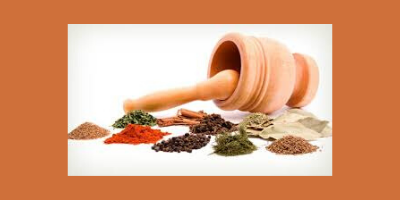Herbal teas have long been known to have medicinal benefits as well as being tasty to drink!
There are so many varieties that there is a tea with benefits for everyone and also for every ailment. Herbal teas have no caffeine so you can drink it in copious amounts at any time of the day or night, knowing that it is just so healthy and good for you.
Other health benefits of herbal tea are:
Helps strengthen the immune system
Lowers cholesterol
Promotes a healthy heart and increases red blood cell production
Helps relieve the symptoms of arthritis
Rids the body of toxins and supports the absorption of natural fluids
Increases energy and state of mind
May also relieve the onset of migraines due to anti-inflammatory properties
CARDOMOM /ELACHI TEA
Cardamom Tea is typically made by infusing about 3 teaspoons of black tea leaves, 3 pods of peeled cardamom pods in about 6 cups of boiling water. About 1 cup of milk and some sugar are then added.
Cardamom can prevent digestive problems & flatulence
Cardamom can prevent nausea and vomiting
Cardamom can sooth an upset stomach
Cardamom can prevent pulmonary disease
Cardamom can be used as an expectorant
Cardamom can help treat colon cancer in some instances
Cardamom Tea may be helpful in fighting irritation during the menstrual period
GINGER TEA
Ginger tea has been used for thousands of years as an herbal remedy to treat a wide range of health concerns from nausea and colds to indigestion and joint pain. It is also purported to help boost the immune system and promote cardiovascular health. Ginger tea offers the following medicinal benefits.
Relieving Joint Pain: Ginger has been used to treat joint pain by stimulating blood circulation and has been used to relieve symptoms of rheumatoid arthritis and Raynaud's syndrome.
Ginger tea is commonly used as a cold remedy. It is said to boost the immune system, soothe sore throats, and treat bouts of flu. It is also believed to improve digestion and help relieve nausea.
Treating Nausea: The brew has been used in traditional Asian medicine to treat nausea. Pregnant women report relief from morning sickness after consuming small amounts of ginger root, ginger tea, and ginger ale. When given in large doses, ginger also relieves chemotherapy-related nausea.
Digestive Disorders: The herb can be used to address flatulence, indigestion, and diarrhoea. It does this by mimicking some digestive enzymes used to process protein in the body.
Promoting Heart Health: As little as 5 grams of dried ginger a day has shown to slow the production of triglycerides and LDL (bad) cholesterol in the liver.
Ginger also has been linked to preventing platelets from sticking together, a condition that could increase the risk of heart attack or stroke.
Treating Colds: Drinking ginger herbal tea is sometimes recommended for relief of cold symptoms because it is said to loosen phlegm and fight chills by spreading a warm feeling throughout the body.
FENNEL/SAUMF TEA
Fennel tea is gentle enough to give to infants and is especially beneficial in treating colic. Fennel tea relaxes smooth muscles and relieves spasms in the gastrointestinal tract which makes it an effective herbal remedy for treating gas and bloating. It also helps treat constipation, soothe an upset stomach, and relieve abdominal cramps. People suffering from irritable bowel syndrome (IBS) find much relief from fennel tea.
• Fennel tea stimulates the effects of estrogen and has traditionally been used to treat premenstrual syndrome (PMS), low milk production, menopausal symptoms, and low libido. Fennel tea also relaxes smooth muscles in the uterus, thus relieving menstrual cramps.
• Fennel tea can help relieve conjunctivitis and sore eyes. After the tea cools, soak a cotton pad in it and place it over the eyelids for ten minutes.
Other benefits of fennel tea include:
boosting metabolism resulting in weight loss
flushing toxins and excess water from the body
soothing a sore throat
loosening and expelling phlegm from the bronchial passages
Reducing a fever.
Preparing Fennel Tea
Pour 1 cup of boiling water over 1-2 teaspoons of slightly crushed fennel seeds, cover, steep for 5 minutes, and strain. For extra flavor, add a fresh orange rind to your fennel tea.
To get the best benefits of fennel tea, store dried fennel seeds in an airtight container and keep in a cool, dry place.
—
Ammarah
Radio Islam
+27118547022
ammarah@radioislam.co.za
www.radioislam.co.za





0 Comments